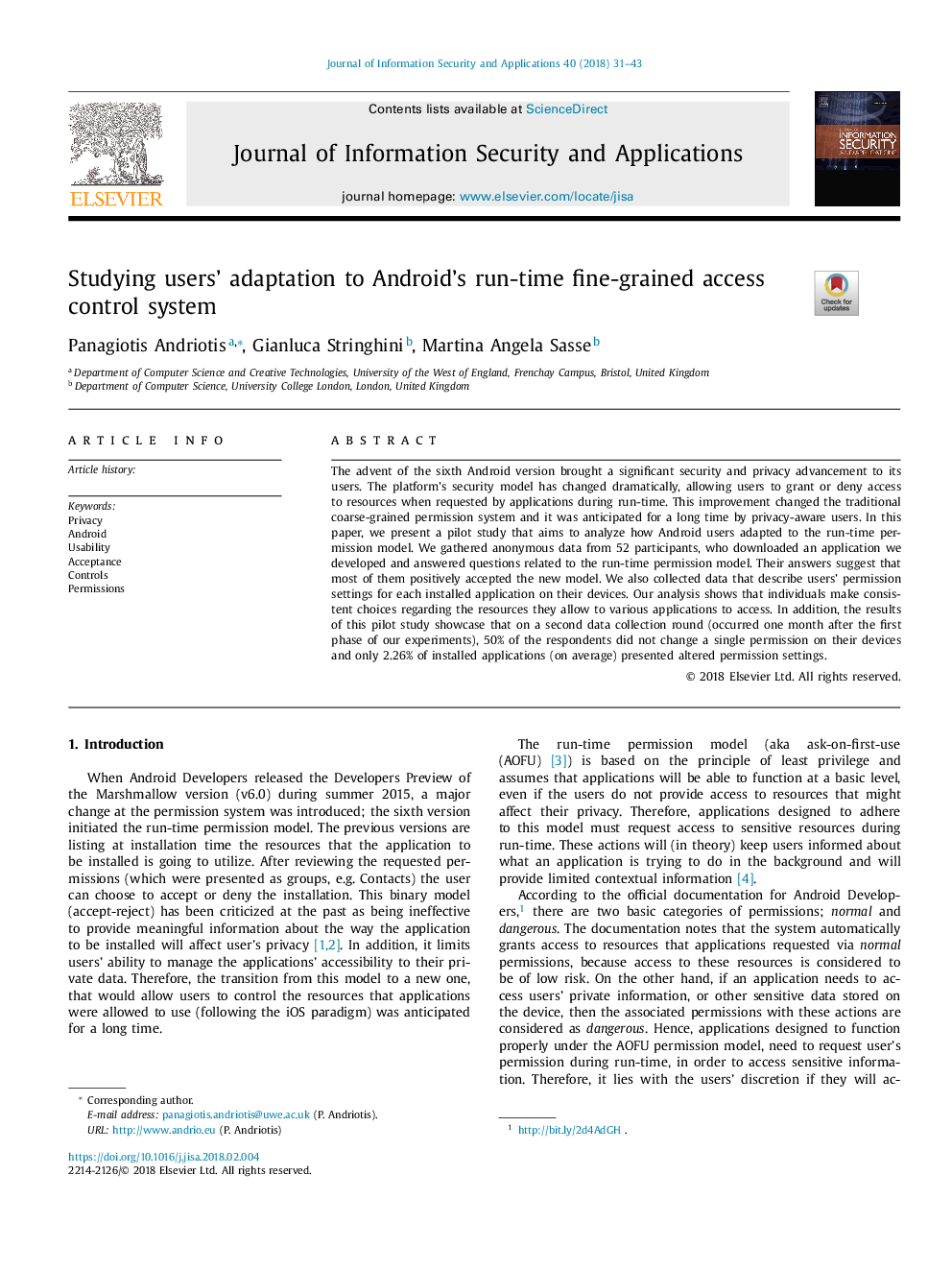| Article ID | Journal | Published Year | Pages | File Type |
|---|---|---|---|---|
| 6884590 | Journal of Information Security and Applications | 2018 | 13 Pages |
Abstract
The advent of the sixth Android version brought a significant security and privacy advancement to its users. The platform's security model has changed dramatically, allowing users to grant or deny access to resources when requested by applications during run-time. This improvement changed the traditional coarse-grained permission system and it was anticipated for a long time by privacy-aware users. In this paper, we present a pilot study that aims to analyze how Android users adapted to the run-time permission model. We gathered anonymous data from 52 participants, who downloaded an application we developed and answered questions related to the run-time permission model. Their answers suggest that most of them positively accepted the new model. We also collected data that describe users' permission settings for each installed application on their devices. Our analysis shows that individuals make consistent choices regarding the resources they allow to various applications to access. In addition, the results of this pilot study showcase that on a second data collection round (occurred one month after the first phase of our experiments), 50% of the respondents did not change a single permission on their devices and only 2.26% of installed applications (on average) presented altered permission settings.
Related Topics
Physical Sciences and Engineering
Computer Science
Computer Networks and Communications
Authors
Panagiotis Andriotis, Gianluca Stringhini, Martina Angela Sasse,
